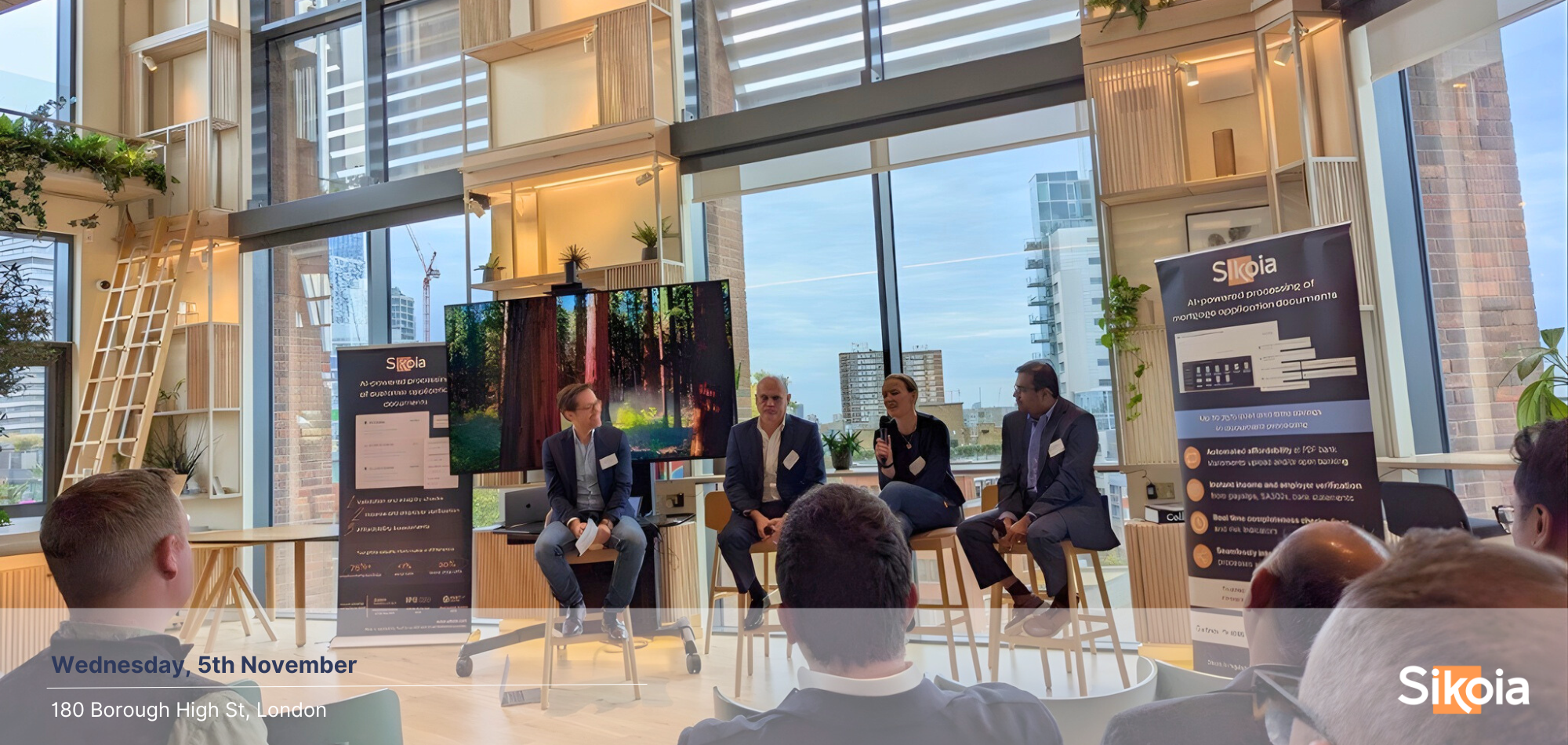From experimentation to accountability: How brokers are redefining AI adoption
Paradigm’s recent survey highlights one thing: the market is no longer asking whether AI has a role in the mortgage journey, but how to use it confidently and safely.
We’re all feeling it - the industry’s changing fast. Customers want smooth, digital journeys, yet lenders are working within complex systems and ever-growing compliance demands. The real challenge now is finding a way to move faster without losing trust or control.

At our recent lunchtime forum, Breaking the Mortgage Automation Ceiling: Risk, Reward & Reality, we brought together senior leaders from across the mortgage ecosystem, spanning banks, brokers, fintechs, and technology providers, to have an open conversation about what’s working, what’s not, and what’s next.
Across three sessions, one theme came through loud and clear: the real opportunity for automation isn’t just about faster decisions, but better collaboration, richer data, and smarter execution.
In our Banks & Brokers Coming Together panel, leaders from Barclays, Nationwide, and Y3S Group explored how lenders and brokers can work more effectively to deliver seamless customer experiences.
Many agreed that the biggest challenge isn’t technology itself, but trust in data and process. Repetition, duplication, and lack of interoperability continue to slow progress. As one speaker put it, “It’s still too common to see customers asked for the same information twice.”
Encouragingly, optimism is growing. There’s a shared recognition that lenders, brokers, and technology partners now have the tools to fix this. AI models that can translate unstructured data, smarter APIs, and open standards are helping to close the gaps. The takeaway? True collaboration will come from data provenance, not paperwork, when every party trusts the source, duplication disappears.
Our fireside chat with Finova, one of the UK’s largest mortgage technology platforms, offered a close look at how innovation is being applied to real-world bottlenecks.
With reach across both brokers and lenders, Finova shared how connected, flexible systems can deliver value faster, launching new journeys in a matter of months instead of years.
A key area of progress is intelligent document automation, developed in partnership with Sikoia, which helps verified data flow seamlessly between brokers and lenders. This kind of automation doesn’t just remove manual effort - it builds trust and speed simultaneously.
When data provenance is clear, compliance becomes simpler, and the market can move faster with confidence.
Our final session, Transformation That Sticks, took a step back to look at what makes innovation sustainable. Speakers from across financial services reflected on a common truth: technology alone doesn’t transform industries, people and culture do.
True transformation happens when organisations listen closely to customers and teams, simplify unnecessary complexity, and build the right conditions for change to last.
Rather than pursuing huge, slow-moving projects, the focus is shifting toward agile ecosystems, smaller, faster initiatives that build momentum and deliver measurable outcomes. It’s a mindset shift that’s starting to take root across the mortgage market.
Across all discussions through out the day, a picture emerged of an industry finally ready to move beyond pilots and promises. Automation is no longer theoretical; it’s becoming tangible, measurable, and outcome-driven. But as every speaker agreed, the journey ahead depends on collaboration: between lenders, brokers, and the technology partners who connect them.
At Sikoia, we’re proud to play a part in helping the industry move forward, creating solutions that combine compliance-grade accuracy with the agility and customer focus today’s market demands.
The next decade of mortgage innovation won’t be defined by faster processing alone, but by trust, connectivity, and shared progress.
If you’d like to stay informed about upcoming events or explore how we’re helping financial institutions unlock smarter automation, please let us know.